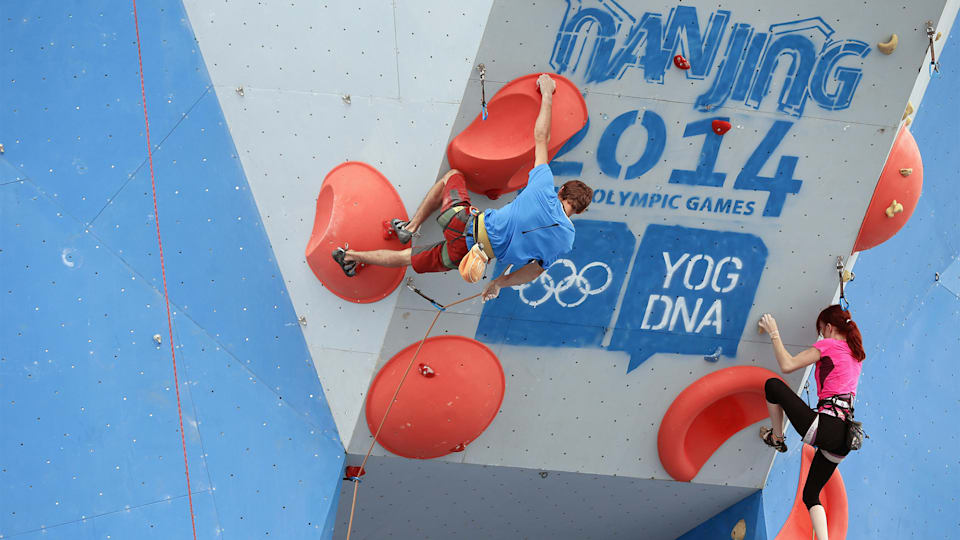Five things you need to know about sport climbing
With sport climbing set to makes its debut at the Youth Olympic Games Buenos Aires 2018, two years ahead of its inclusion in the Olympic Games Tokyo 2020, we reveal five things you need to know about the exciting new addition to next year’s YOG programme.

Triple test
There will be a combined format for sport climbing at the 2018 YOG featuring three disciplines – speed climbing, lead climbing and bouldering, with the winner decided by the highest cumulative score. Forty athletes will take part, including 20 girls and 20 boys, exactly the same number as in Tokyo 2020. Speed climbs are against the clock while lead climbing is more technical. Although the athletes are secured by a safety rope, the event requires them to navigate up the wall without the help of pre-placed anchor points above them. Bouldering, by contrast, involves climbing on low, short routes without a safety rope.
Global appeal
According to the International Federation of Sport Climbing (IFSC), more than 140 countries have climbing walls. The IFSC estimates there are now 35 million climbers worldwide, with an average age of 23.
History lesson
Lead climbing is the oldest of the three disciplines, with the first organised competition, known as “SportRoccia”, taking place near the Italian city of Turin in 1985. The first Speed Climbing World Cup was staged in 1989, while the maiden bouldering event, dubbed the “Top Rock Challenge”, took place in Chamonix (France) nine years later.
Olympic debut
Sport climbing was part of the highly successful Nanjing 2014 Sports Lab. Sixteen top international and Chinese athletes took part to showcase their professions to the world in a programme of performances each day. These top-level performances were alternated with initiation sessions with the young participants and communities throughout the Nanjing 2014 YOG period. The purpose-built climbing wall remained at the Sport Lab as part of the legacy and to meet the demand of the increasing popularity of sport climbing.
World competition
The first IFSC World Championships were held in Frankfurt (Germany) in 1991, attracting 110 climbers from 22 countries. The Championships featured lead and speed climbing events, with bouldering finally introduced in 2001. Unlike the 2018 YOG in Buenos Aires, however, medals were awarded for the individual disciplines. The most recent competition was staged in Paris (France) last September.
